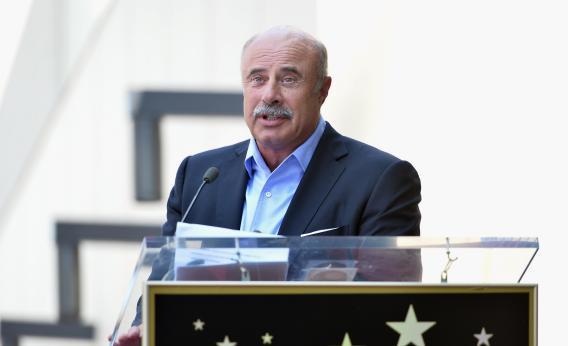Earlier this week, Dr. Phil McGraw—that spawn of Oprah who has previously attempted to heal the nation via reality television competition, solve obesity by hawking his own weight-loss supplements, and save Britney Spears by weaseling his way into her treatment facility—decided it was time to resolve a burning question about sexual assault in America. So Dr. Phil, or the poor soul who manages his social media presence, posed it to his million-plus Twitter followers: “If a girl is drunk, is it OK to have sex with her? Reply yes or no to @DrPhil.”
This did not go over well. Salon deemed the tweet “vile.” Anti-rape activist Carmen Rios launched a Change.org petition aimed at educating Dr. Phil that “sexual contact without verbal, sober, conscious consent is rape” and that “there is no question, Dr Phil: rape is rape.” On Twitter, the query produced more questions than it did answers. Questions like: “If a TV Shrink makes my daughter feel guilty b/c she was date raped while drunk, can I punch him in his dick?”
Even Dr. Phil did not, ultimately, appreciate his tweet. It soon disappeared from his feed, and a representative apologized on his behalf. “This Tweet was intended to evoke discussion leading into a very serious show topic based upon a recent news story,” the rep said. “It was a poll question, not a statement or a joke.” It’s still unclear why Dr. Phil and his producers thought that crowdsourcing a theoretical woman’s consent to theoretical sexual intercourse would help elucidate the issue of alcohol-assisted sexual assault: Fifty-one percent of Dr. Phil viewers agree: Go get her, kid! But the rep did clarify Dr. Phil’s own position on the question: “As he has maintained over many years, Dr. Phil believes that the position of those incapacitated in any fashion; be it drugs, alcohol, age or mental illness can not and do not have the capacity to give their consent to anything, especially sex, which could have life changing repercussions.”
The consensus is that the correct answer to Dr. Phil’s tweet is “no.” As Rios wrote in her Change.org petition, “rape is rape.” But that Randian construction doesn’t really help anyone to better understand the distinction between consensual sex and sexual assault. Dr. Phil’s tweet isn’t offensive because the answer is always “no.” It’s offensive because the answer is “it depends.”
Unlike DUI laws that establish blood alcohol level limits to stop drunk drivers, there’s no clear legal limit over which a person cannot consent to sex. Is it OK to have sex after one drink? (If not, I’m in a lot of trouble.) How about two? Five? Fifteen? When does tipsy turn to “legally incapable of consenting to sex?” What are the physical signs that mark this level of intoxication? If a boy is drunk, is it OK to have sex with him? What if both parties are over that line? Unfortunately for Dr. Phil, these questions do not have clear one-word answers. Establishing consent requires a great deal of context. In rape cases that involve alcohol consumption, police, attorneys, judges, and juries will spend months debating these lines.
“These cases are very difficult,” Jennifer Gentile Long, director of AEQuitas, an organization that provides resources to attorneys prosecuting crimes against women, told CBS in the wake of the Steubenville, Ohio, trial. In rape cases like that one, she instructs prosecutors to appeal to common sense: “If you’re falling down, and vomiting, is that a situation where you’d going to want to have consensual sex with someone?” she said. The particular facts, of course, will change with every case. But Dr. Phil could start with this: If you want to know if it’s OK to have sex with someone, you might start by asking her, not a million other people.
